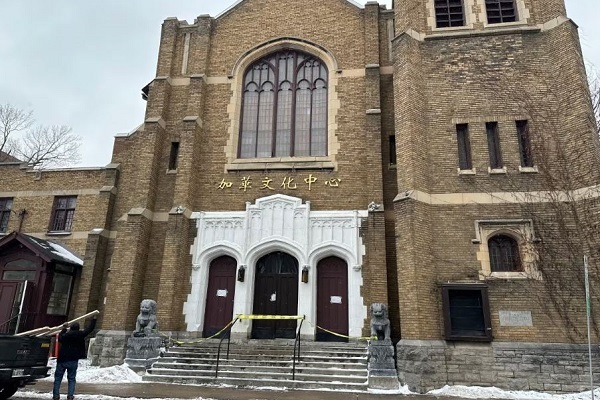Historic Ottawa Building to Become Downtown's First Major Mosque

Led by Muhammad Suliman, Al-Hassan Jouali, and others, the initiative aims to transform the structure at 397 Kent Street into what will be known as Centretown Mosque, CBC News reported on Saturday.
Previously home to the First United Church of Ottawa and later the Ottawa Chinese-Canadian Heritage Centre, the building features a spacious main hall illuminated by tall windows and a stained-glass porthole.
The group plans to establish the primary prayer space in this hall before the start of Ramadan on February 28. In the meantime, a separate room on the main floor, intended for future use as a gym, is being temporarily used for prayer.
The mosque is envisioned not only as a place of worship but also as a youth center and a welcoming gathering space for people of all faiths.
Read More:
According to Al-Hassan Jouali, a local business owner for nearly four decades, this will be Ottawa's first significant mosque in the downtown area. He noted that while many mosques and community centers have been established on the city's outskirts, the downtown core has remained underserved.
The building's ownership has granted the group until October to complete their final payment, allowing them to implement their plans in phases. Currently, the closest central prayer space is The Ottawa Mosque in Tunney's Pasture, where Muhammad Suliman previously served as imam until parting ways with the Ottawa Muslim Association in late 2023.
Suliman emphasized that the establishment of Centretown Mosque is not in competition with existing mosques. "We all are working on one mission and one vision: to promote peace and to help Canadians who live here," he stated.
Read More:
Built in 1911 as the First United Church for $33,000, the building, also known as Trillium Hall, carries a rich legacy. David Flemming, chair of the Heritage Ottawa Advocacy Committee, explained that while the building's exterior is protected under the Ontario Heritage Act, the removal of interior seating is not considered a significant alteration.
Suliman highlighted the building's historical importance, saying it remains a place where people can find support and acceptance, regardless of their faith or background.
Source: Agencies



